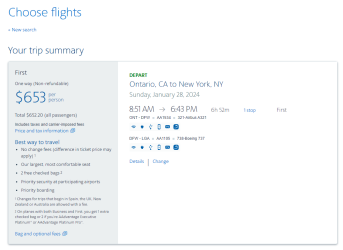- Joined
- Nov 16, 2004
- Posts
- 48,414
- Qantas
- Platinum
- Virgin
- Platinum
- Oneworld
- Emerald
I wonder how this will affect tools such as ITA Matrix?
Starting in April, American will remove its lowest fares — about 40 percent — from the GDS using the old way of selling. Agencies who don’t adapt will now find themselves only with high fares in the market. This will create all sorts of problems until the systems are truly functional and ready.
... So what if agencies aren’t able to see 40 percent of American’s fares? Because of American’s huge network advantage in the cities it cares about, it will find a way to backfill that traffic that disappears from the agency side. That’s all American wants anyway; to have the customer working directly the way it wants to work.
There are so many potential problems with this move that it’s hard to state them all. Travel agents are exactly that… agents for the airline. They are there to service bookings, help with changes, resolve problems, and do that without burdening the airline’s internal systems. A big shift toward direct traffic too quickly could result in disaster for American’s internal servicing efforts since it’s unclear how much servicing can be done on NDC bookings.


















